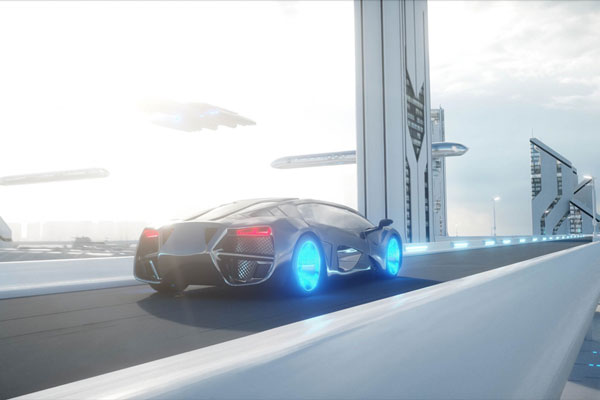What’s in-store for the automotive industry post COVID-19?

With the outbreak of COVID-19 putting the automotive industry into chaos as new car sales continue to weaken, conversations about how the industry will look once the pandemic has passed continue to be rife.
Will consumers return to dealerships in droves once social restrictions have eased? Or will they be put off making large scale purchases like a new car in the near future? What does this mean for budget and luxury car brands?
With so many questions yet to be resolved, it is difficult to identify for certain how the industry will look even five years from now.
For Julian Thomson, chief designer for Jaguar, it is his job to identify what consumers will want from vehicles in the future and design future models based on this, while establishing the future strategic design direction for Jaguar.
Having spent the better part of the pandemic stuck at home while global operations among most car brands slowed almost to a halt, Thomson and his team have been pondering what is on the horizon for the automotive industry, with some interesting views expressed among them.
“I think we’re interested to see how it’s going to change people’s attitudes,” said Thomson. “I was just watching something on TV last night, which had a scene set in Grand Central Station and two people going onto a train, just pushing past each other – it looks so alien to see people in a big crowded station or running around each other, you know, and it’s amazing how quickly people’s attitudes change.
“And so, people’s views of getting on a bus, or shared transportation – how are they going to feel about that? The whole thing about the general rat race and people’s values in life and family and work/life balance, all these things are being questioned.”
Consumers are also expected to put a much greater emphasis on health, with Thomson believing that lower pollution and noise levels as a result of less cars on the roads will make buyers think more about the environmental impact of their vehicles in the future.
“People are going to be really thinking about their health. They’re seeing that suddenly the streets are quieter, the air is cleaner. You know, everyone’s seeing the world in a different way.”
A move towards quieter, cleaner cars would open the door for electric vehicles (EVs) to grow in popularity, with many countries already seeing an increase in the number of EVs on the roads as government incentives and more environmentally conscious decision making them far more enticing.
Thomson also believes the increased focus on health and wellbeing will see manufacturers place a larger focus on air pollution and quality inside the car, rather than just the emissions produced out the tailpipe.
“I think it will probably encourage the health element of cars, as well as about how healthy cars are, and the damage they do, but also how they look after their occupants in terms of air quality. I think that’ll be important,” continued Thomson.
Another question currently intriguing the industry is how consumers will react to the financial impacts of the pandemic and whether this will turn them away from luxury car brands.
On this topic, Thomson said he can see it going either way.
“I think the crisis will affect people’s spending power – how they actually measure success and how they measure the value of having stuff.
“So, we could either see people being more modest and withdrawn, wanting to have simpler lives. Or we could see them doing the complete opposite of just going mad, going crazy, and saying life’s too short.”
With some wealthier consumers being locked out of retail stores for much of the pandemic and now looking to get their spending fix, it is not impossible that luxury brands see some benefit from this.
Source: Cars Guide | What will the automotive industry look like post-pandemic?
12 May 2020









